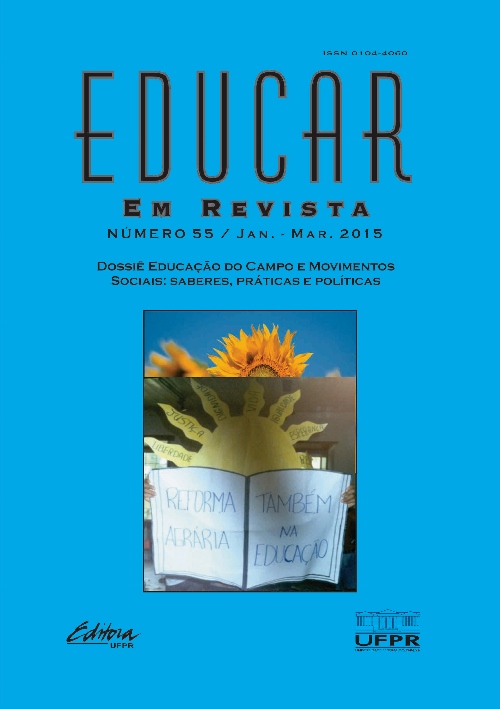The Landless Voices Database: A Trajectory from Cultural Studies to Pedagogical Impact
Resumo
This article initially addresses the conception of the web-enabled database Landless Voices (VIEIRA, 2003) as a contribution to Cultural Studies and, crucially, to the understanding of the relational workings of Brazil’s complex and regionally diverse culture of landlessness, and to the validation of the cultural self-expression of the sem-terra/Sem Terra. Secondly, it analyzes speculative data obtained from prospective primary teachers being trained at the Federal University of Paraná, Brazil, on the contribution of the database to the pedagogical context. The main findings are that the three predominant types of impact, using Meagher’s terminology (2013, p. 5) are conceptual (new knowledge), cultural (revising misconceptions) and instrumental (future development of pedagogic practices). It then moves to empirical research on social impact, understood as the contribution of academic research to non-academic users, more specifically to its presumably main beneficiaries – the Sem Terra learners themselves. The findings of these first exploratory workshops with learners in four rural schools in settlements in the states of Paraná and São Paulo, respectively in October and November 2013, are that the database broadens their educational resources and empowers a historically marginalized social segment. This article confirms, however, that impact is not a punctual activity (MEAGHER, 2013) and concludes on the need for continuous interaction with learners for the pedagogic impact of academic research to be generated[1].
[1] This is part of Landless Voices Impact Enhancement Project, developed by Professor Else R. P. Vieira (Principal investigator) and co-researchers: Dr. Sônia Schwendler (Federal University of Paraná, UFPR) and Professor Bernardo Mançano Fernandes (São Paulo based UNESCO’s Chair in Territorial Development and Education for the Countryside; MA in Territorial Development in Latin American and Caribbean of the São Paulo State University – UNESP, and PhD Programme in Geography, Presidente Prudente Campus), both honorary researchers at Queen Mary’s Department of Iberian and Latin American Studies. This research on impact is financed by the School of Languages, Linguistics and Film (Queen Mary University of London) with the support of UFPR School of Education and of UNESP Centre for Agrarian Reform Studies, Research and Projects − NERA).
Publicado
Como Citar
Edição
Seção
Licença
Todo o conteúdo do periódico está licenciado sob uma Licença Creative Commons do tipo atribuição BY.
Os Direitos Autorais para artigos publicados na Educar em Revista são do autor, com direitos de primeira publicação para a revista. A revista é de acesso público (Open Access), sendo seus artigos de uso gratuito, com atribuições próprias, em aplicações educacionais e não-comerciais.



